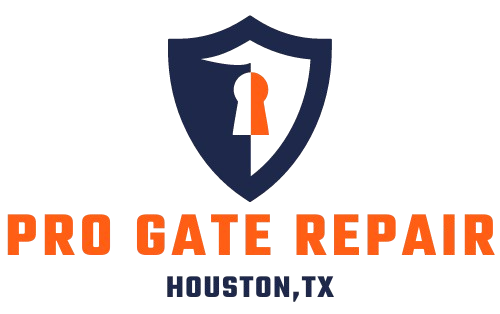Understanding Your Options
There are several materials to choose from, each with its unique benefits and drawbacks. Here’s a detailed look at the most popular options:
Wrought Iron Gates
Benefits:
- Strength and Durability: Wrought iron gates are exceptionally strong and provide a high level of security, making them ideal for both residential and commercial properties.
- Aesthetic Appeal: They offer a classic and elegant look that can significantly enhance the curb appeal of your property.
- Weather Resistance: Wrought iron is resistant to rust and weathering, making it suitable for harsh climates.
Drawbacks:
- Cost: Wrought iron gates tend to be more expensive compared to other materials.
- Maintenance: They require regular maintenance, including painting and rust prevention, to keep them looking their best.
Aluminum Gates
Benefits:
- Lightweight and Easy to Install: Aluminum gates are much lighter than iron or steel, making them easier to install and operate.
- Low Maintenance: Aluminum is resistant to rust and corrosion, requiring minimal upkeep.
- Cost-Effective: Generally less expensive than wrought iron and steel gates.
Drawbacks:
- Strength: Aluminum is not as strong as iron or steel, making it less suitable for high-security applications.
- Susceptibility to Damage: Aluminum gates can dent or bend more easily than other materials.
Steel Gates
Benefits:
- Strength and Security: Steel gates offer excellent strength and are ideal for high-security needs.
- Weather Resistance: With proper treatment, steel gates are resistant to rust and weathering.
Drawbacks:
- Cost: Steel gates can be more expensive due to their strength and durability.
- Maintenance: They require regular maintenance to prevent rust, especially in coastal areas.
Wood Gates
Benefits:
- Aesthetic Appeal: Wood gates provide a traditional and natural look that can be customized with paint or stain to match your property.
- Versatility: Available in various styles and designs to suit different architectural themes.
Drawbacks:
- Weather Susceptibility: Wood is more prone to weather damage, such as warping, cracking, and rotting, especially in humid climates.
- Maintenance: Regular painting or staining is required to maintain their appearance and protect them from the elements.
Composite Gates
Benefits:
- Durability: Composite materials, made from a mix of wood fibers and plastic, offer the look of wood with greater resistance to weather and decay.
- Low Maintenance: These gates require minimal upkeep compared to natural wood.
Drawbacks:
- Cost: Composite gates can be more expensive than wood and aluminum gates.
- Appearance: While they mimic wood, some people prefer the authentic look of natural wood.
Factors to Consider
When choosing the material for your driveway gate, consider the following factors:
- Security Needs: Determine the level of security required. For high-security needs, steel or wrought iron may be the best options.
- Climate: Consider your local weather conditions. Coastal areas may benefit from rust-resistant materials like aluminum or treated steel.
- Maintenance: Assess how much time and effort you’re willing to invest in maintenance. Materials like aluminum and composite require less upkeep.
- Aesthetic Preferences: Choose a material that complements the architectural style of your property.
- Budget: Balance your needs with your budget. Some materials may offer a better balance of cost and benefits for your specific situation.
Conclusion
Choosing the right material for your driveway gate is a crucial decision that impacts security, aesthetics, and maintenance. At Pro Gate Repair Houston, we specialize in helping you select and install the perfect gate for your property. Our team of experts will guide you through the process, ensuring you make an informed decision that meets your needs and enhances your property’s value.
For more information or to schedule a consultation, visit our Driveway Gate Repair Services. Let Pro Gate Repair Houston help you choose the best material for your driveway gate today.

Leave a Reply